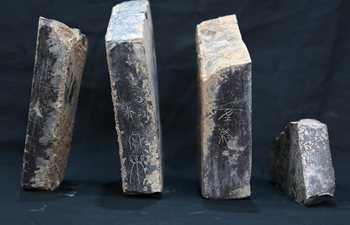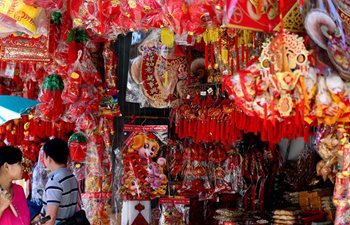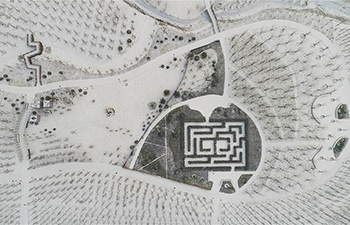CANBERRA, Jan. 30 (Xinhua) -- Chinese investment in Australia's healthcare system has soared past 5.5 billion Australian dollars (4.4 billion U.S. dollars), a report has found.
The report, released by global professional service company KPMG on Tuesday, revealed that China's total investment in the sector has occurred since 2015.
It found that investments had been concentrated in health supplement and medical treatment sectors with no significant investment in aged care, biotechnology or pharmaceuticals to date.
According to the report, 2.06 billion U.S. dollars was invested in 2015 followed by 1.09 billion in 2016 and 1.27 billion in 2017 across 16 deals.
The 1.2 billion U.S. dollars acquisition of Swisse Wellness by Biostime across 2015 and 2016 was the largest single investment followed by Luye Medicel Group's 750 million U.S. dollars acquisition of hospital operator Healthe Care.
Doug Ferguson, head of Asia and International Markets at KPMG and co-author of the report, said that Chinese companies were seeking the "complete Australian package."
"Chinese investors have really shifted their investment interests to Australia's hi-tech, high quality health products and services sector in the last three years," Ferguson told Xinhua on Tuesday.
"Rather than general health services, many Chinese companies seek to invest in specialist services, such as oncology, radiology, ophthalmology, in vitro fertilisation (IVF), and aged care.
"These services are replicable in the Chinese market and customised to fit the specific needs of China's middle-to-high end consumer markets. Australian healthcare brands have an initial advantage in China due to their reputation for high quality products with consumers."
He said that despite a slight drop-off in investment between 2015 and 2016 there was still plenty of room for investment growth in the sector.
"China's healthcare spending is expected to grow by 8.1 percent annually over the next five years, representing a big opportunity for Australia's health sector," Ferguson said.
"The report predicts that investment will broaden across all sectors in the short-to-medium term. The patterns that have emerged in Chinese healthcare investment so far will likely strengthen in the coming years as healthcare assets become a key component of many Chinese investors' portfolios."
















